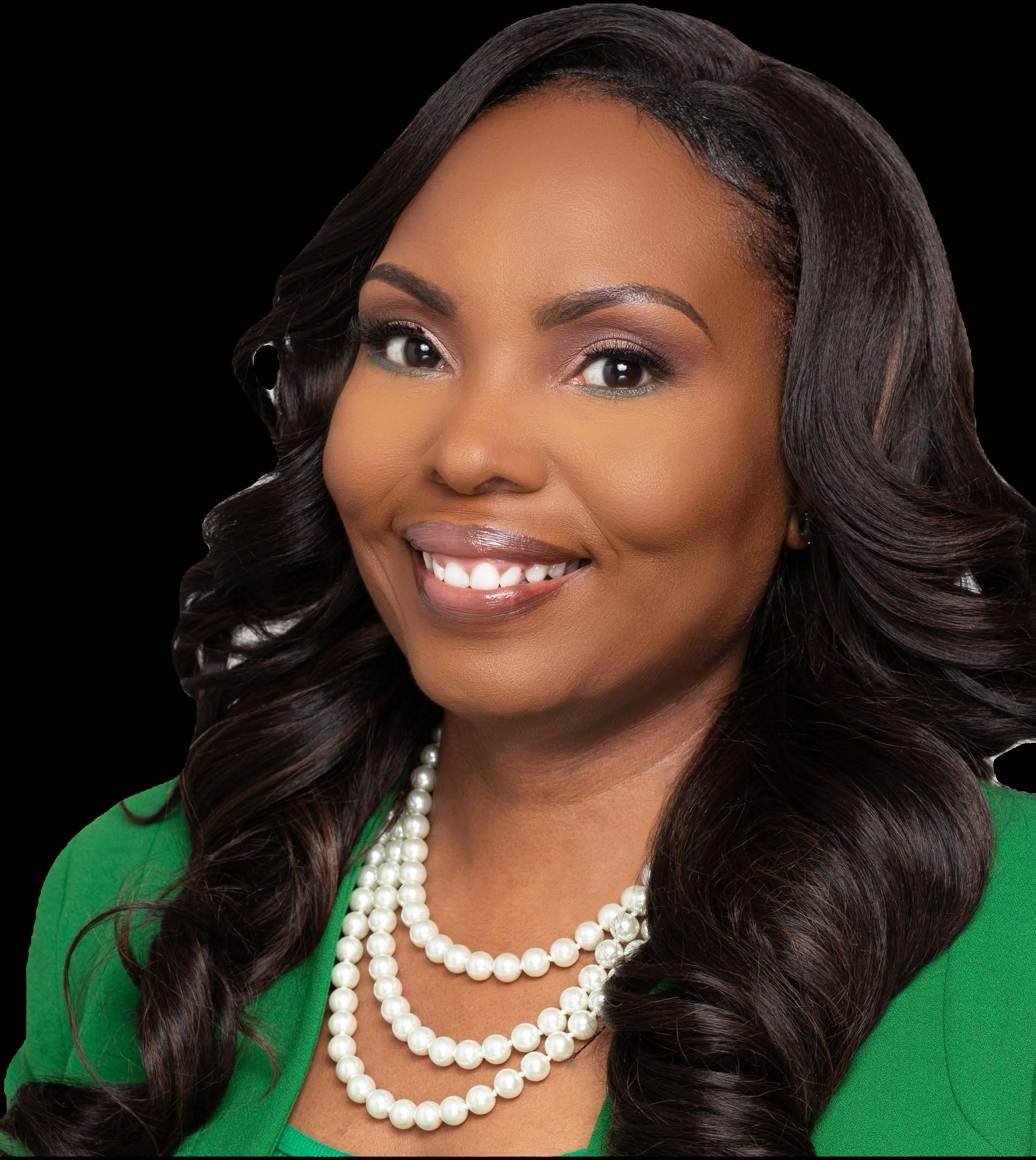











Chantel Ross Francois is one of the few names that combine international expertise, local impact, and visionary leadership in the world of tourism. Interestingly, what shaped her love for tourism and cultural exchange is her household. Francois grew up in a Canadian Caribbean American household, which gave her a unique lens on the world. She was surrounded by different cultures, traditions, and values from an early age, and it taught her that hospitality is more than just service; it’s a connection. For her, every family gathering was like a mini cultural exchange, and that naturally expanded into a love for showcasing destinations, cultures, and experiences. Tourism has always been a passion and a bridge for Francois—it’s about bringing people together and creating spaces where the world feels a little smaller and more familiar. Her job entails reimagining how cities welcome people, and she does so effortlessly.

Untold Truths The Man Who Left 07 5 Ways to Make Shoes More Comfortable
13-14 04-05 FASHION #UNSHAKABLE TRUTHS BEAUTY 12 Photo: Kola Oshalusi @insignamedia Makeup: Zaron
Read Chantel Ross Francois’s story on pages 8 to 10.
Shoes carry us through long walks and busy workdays; however, they can also become a source of pain when they are too tight, too hard, or not designed for comfort. Pages 4 and 5 outline suggestions to make your shoes more comfortable.
Our beauty page discusses makeup essentials. Beauty writer, Dorcas Akintoye, reminds us that less is more when it comes to makeup, and that we don’t have to carry our entire vanity case with us everywhere we go; just a few key items are needed— think of them as your “emergency kit” for quick touch-ups throughout the day. Scroll to page 12 for this.
We celebrate Nigeria’s 65 years of Independence with a special feature on pages 13 and 14. I urge you to read it.
Happy 65th Independence to Nigeria.
Until next week, enjoy your read.


@onahluciaa + 2348033239132

AUSTYN OGANNAH
PUBLISHER/EDITOR-IN-CHIEF
Executive Editor: Onah Nwachukwu @onahluciaa
Writer: Johnson Chukwueke
Design & Layout: Olaniyan John ‘Blake’
Digital Media: Oladimeji Balogun
Consulting Art Director: Sunny Hughes ‘SunZA’


+234 810 345 2286, +234 913 333 3888
8-10
15 16 REVIEW DOWNTOWN CONFIDENTIAL COVER Chantel Ross Francois Redefining Tourism
Lagos: Chaotic, Unapologetic, Yet Always Home




When Desire Wins Green, White, and Global 5 Makeup Essentials That Belong in Every Makeup Bag
One Battle After Another

Boluwatife Adesina @bolugramm
- Contributing Writer
Boluwatife Adesina is a media writer and the helmer of the Downtown Review page. He’s probably in a cinema near you.
Dorcas Akintoye @mila_dfa_
- Contributing Writer
Dorcas Akintoye is a dedicated writer with 5 years prolific experience in writing articles ranging from food, entertainment, fashion and beauty. She loves writing, listening to music and playing scrabble. She is a highly-skilled, enthusiastic, selfmotivated professional writer.
Sally Chiwuzie @unshakable.is.a.state.of.mind
- Contributing Writer
Sally Chiwuzie is a non-practising barrister who owns the brand #Unshakable. She is the author of Silent Symphonies, a fictional love story, and the creator of the podcast Chronicles of #Unshakable Truths.
Ada Obiajunwa @aaddaahh
- Contributing Writer
Ada Obiajunwa writes from Lagos about the big truths tucked inside ordinary moments — friendship, self-discovery, and the quiet revolutions of everyday life. She believes in the power of presence, good banter, and decoding the unsaid. Through her fragrance studio, WhiffWonders, she also crafts scents that weave memory and emotion into experiences that feel like home.
























BY DORCAS AKINTOYE
Shoes are one of the most important parts of our daily outfit. They carry us through long walks, busy workdays, and even special occasions. However, as much as shoes can complete a look, they can also become a source of pain when they are too tight, too hard, or simply not designed for comfort. The good news is that you don’t always need to throw away uncomfortable shoes. With the right trick, you can make almost any pair of shoes feel more comfortable on your feet. Here, we will show you five simple and effective ways to make your shoes more comfortable.
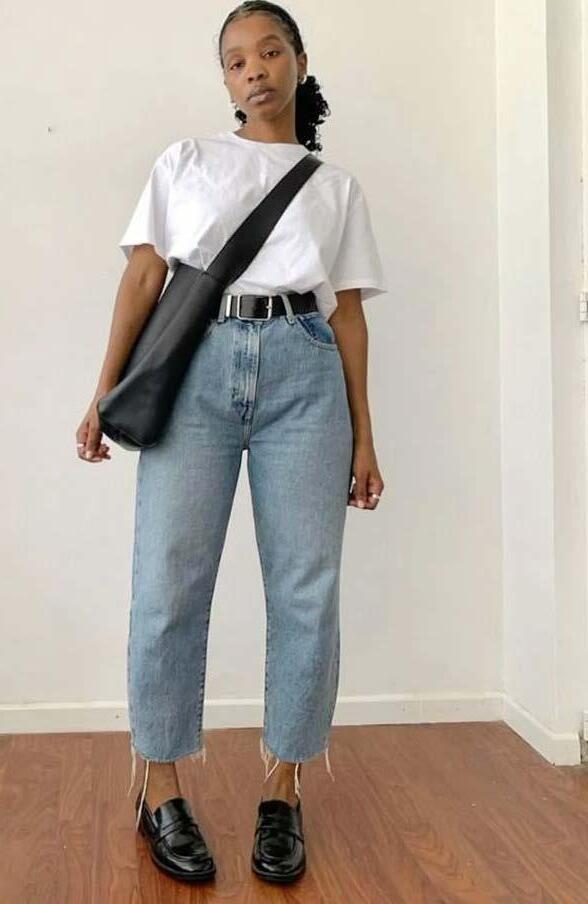
New shoes often feel stiff and hard because the material has not yet adjusted to the shape of your feet. If you wear them for long hours immediately after buying them, you might end up with painful blisters or sore spots. The best way to avoid this is to break them in slowly. Start by wearing them indoors for short periods, giving your feet time to adjust while also softening the material. Pairing them with thick socks can also help stretch the shoes a little faster. With time, the shoes will mould to your feet and become more flexible, making them much easier and more comfortable to wear outside.
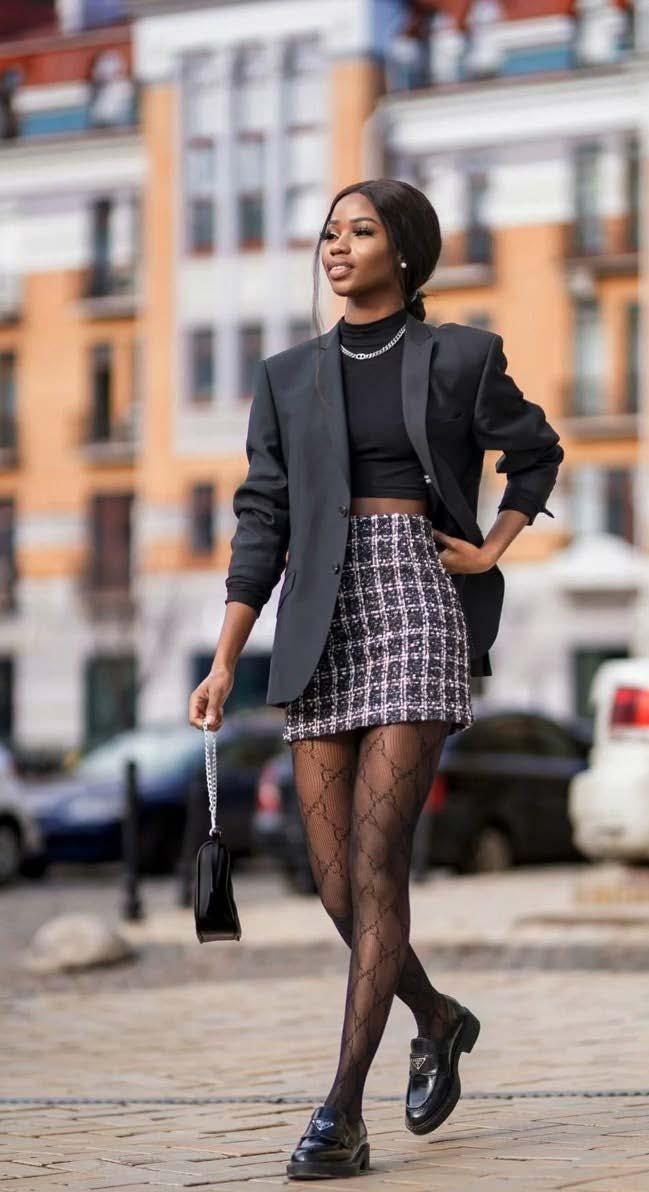
One of the most effective ways to make shoes more comfortable is by using insoles or shoe cushions. Some shoes, especially fashionable ones, lack sufficient padding, which can cause discomfort in your feet after prolonged walking or standing. Insoles add that missing layer of softness and support. Even small additions, such as heel pads or cushions placed under the ball of your feet, can make a significant difference. By using insoles, you not only improve comfort but also enhance the overall support your feet receive, which helps prevent body aches in the long run.
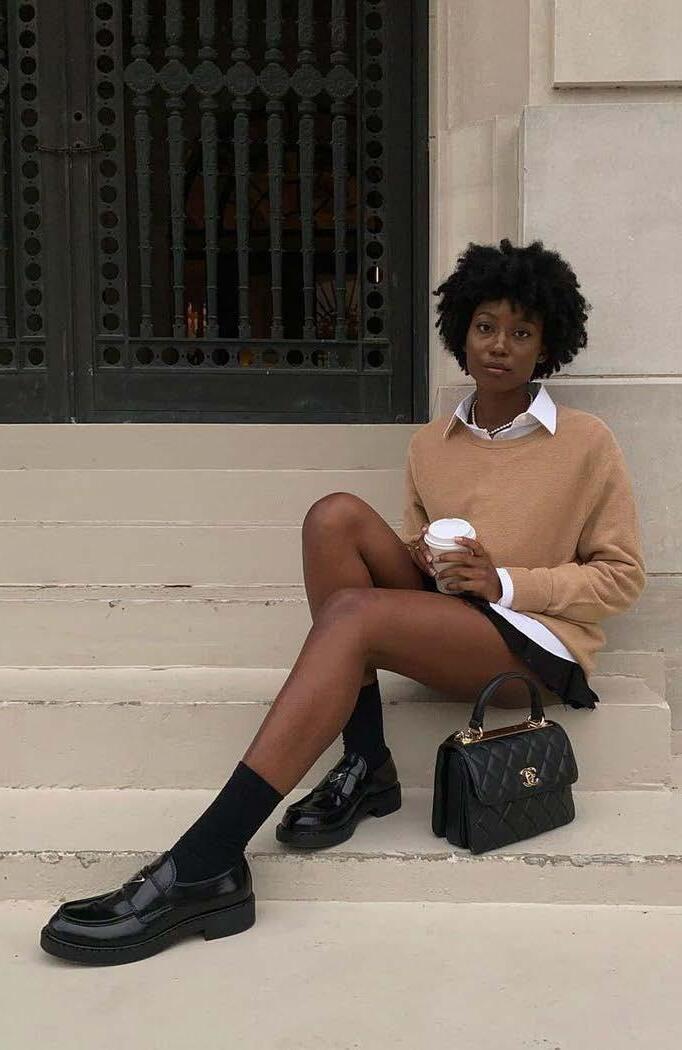
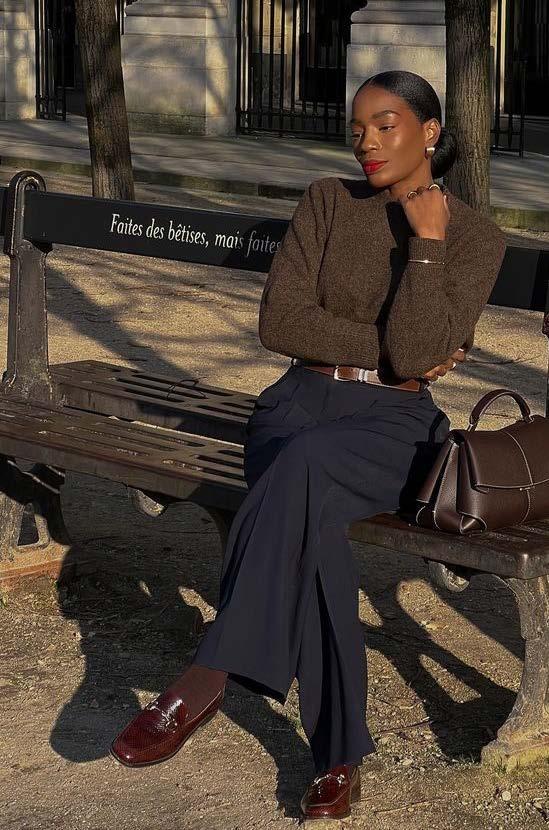
Tight shoes are one of the most common reasons people struggle with discomfort, but luckily, there are ways to stretch them without damaging the material. You can invest in a shoe stretcher, a simple tool that widens or lengthens shoes to provide your toes with more space. If you don’t have one, a common home trick is to wear thick socks, put on the tight shoes, and use a hairdryer to apply heat, which loosens the material.
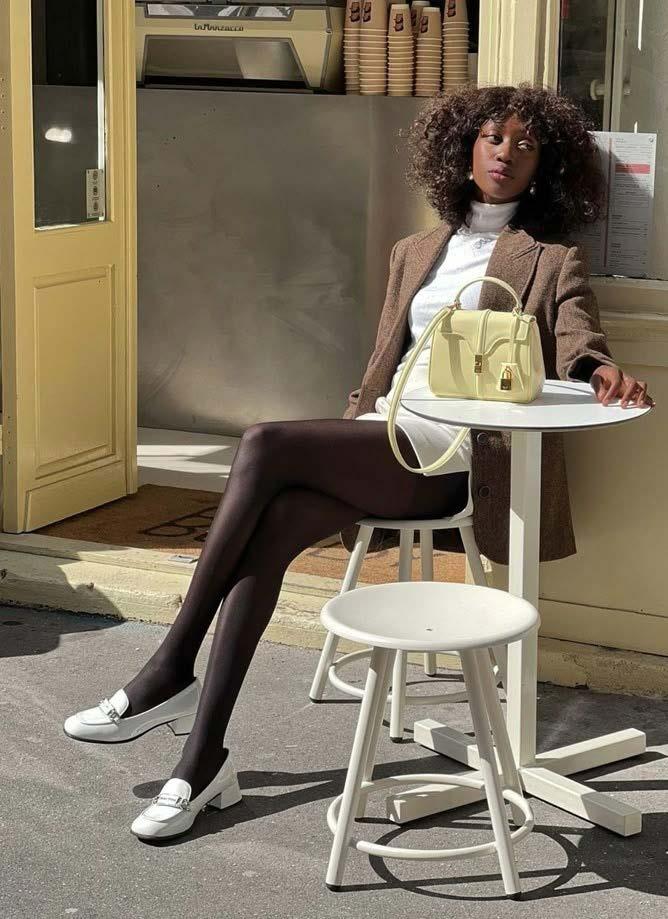
Socks do more than just protect your feet from sweat; they can also enhance the fit and feel of your shoes. If your shoes are slightly bigger than your size, wearing thicker socks can fill in the extra space and stop your feet from sliding around. With the right pair of socks, even a stiff or loose pair of shoes can suddenly feel much more comfortable.
Sometimes, no matter what you try at home, the shoes still don’t feel right. That’s when visiting a professional cobbler becomes the best option. Cobblers have the right tools and skills to adjust shoes without ruining them. They can stretch the material, add extra padding in specific areas, repair rough edges that cause blisters, or even adjust the soles to make them softer and more balanced for walking.
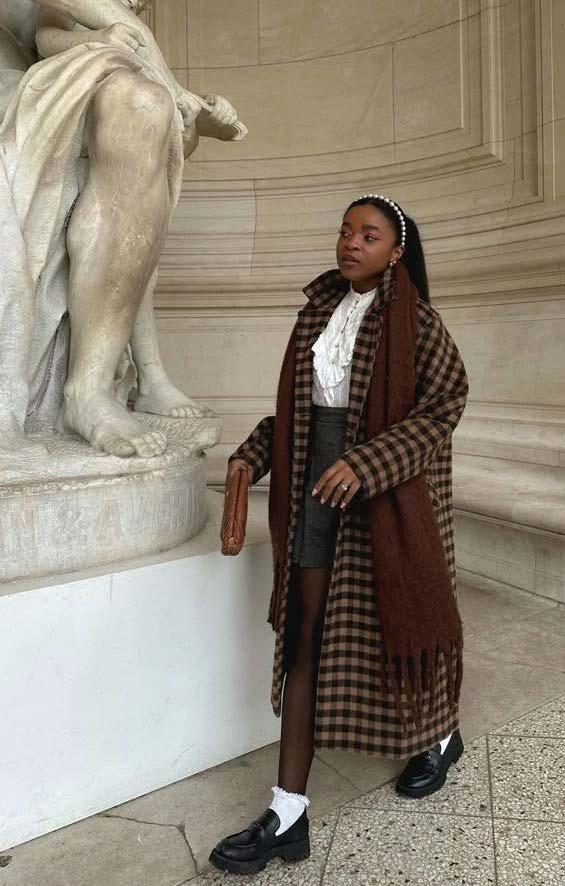



SALLY CHIWUZIE @unshakable.is.a.state.of.mind
He did what so many men promise but so few ever do. He left.
For years, he lived a life of duty. The house, the bills, the family holidays, the reliable routines. Outwardly steady, inwardly hollow. When love came calling in the arms of another woman, he convinced himself it was destiny. Unlike his wife, she made him feel alive again. She laughed at his jokes, admired his ambitions, soothed his silences. She asked him once where it was all heading. He smiled sadly and, in true Meatloaf style, replied: “I will do anything for love, but I won’t do that.”
Except, in the end, he did.
He left the marriage, the home, the familiarity of a life already written. He chose passion over duty, the unknown over the known. For a brief moment, he believed he was free.
But leaving was not liberation. It was a tearing.
The financial ties alone nearly broke him. Divorce meant dividing everything he had toiled for: the house he had built into a sanctuary, the investments he had sweated into, the savings he had guarded. Suddenly, the law of the land was clear: she would remain in the home, the children with her, while he moved into a dingy little place that felt more like exile than a fresh start.
And still, the bills kept coming. Child support. Spousal maintenance. School fees. Medical bills. The quiet demands of fatherhood and marriage that do not end just because the marriage does. He was still paying, still providing — only now from the sidelines.
The mistress, now his partner, welcomed him at first with warmth. Their honeymoon phase blazed with passion. But the fire soon revealed shadows. The reality of blended family life came knocking: her children wary of him, his children resentful of her. Holidays became logistical nightmares, birthdays sources of tension, every milestone another
reminder of what had been broken. The freedom he craved carried its own shackles.
And yet, leaving is not always cowardice. Sometimes it is courage. Sometimes it is the only way to stop pretending, the only way to reclaim a life that has long since slipped away. To walk out of a hollow marriage is, for some, the bravest act they will ever commit.
For him, it was both. He was brave and reckless, selfish and sincere, villain and victim. He gained love but lost ease. He found passion but lost peace.
The untold truth is this: leaving is harder than staying. It demands resilience, sacrifice, and a willingness to live with the judgment of others. It can be the beginning of a new life, or the
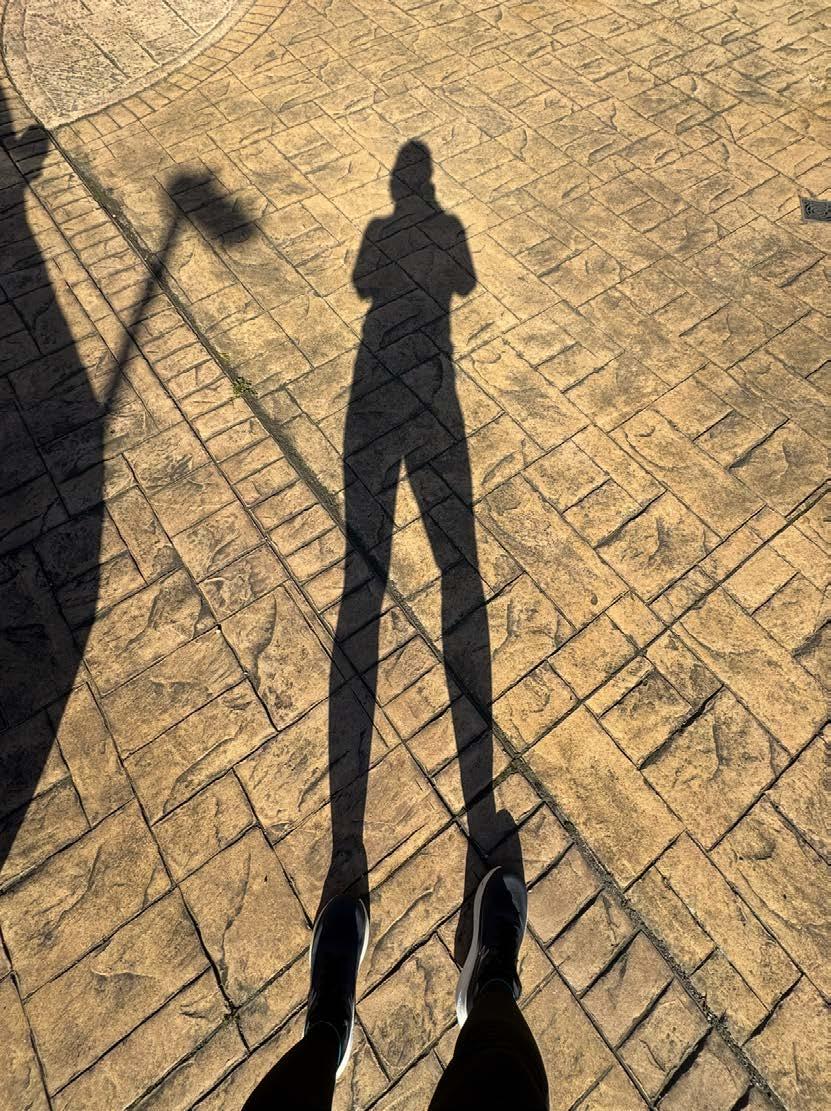


unravelling of everything. It can save you or scar you. And every case deserves to be judged on its own merits, not painted with a single brush.


Was it worth it? Perhaps. Perhaps not. But he will never be counted among the men who stayed in silence, who lived dutifully but unloved. He made his choice, and he bore the price.
And yet, sometimes staying is the easier option — and that too is fair enough. For some, endurance offers its own kind of stability, even if it is quiet, loveless, or constrained. Both paths carry their own costs. Both demand their own kind of courage.
The #Unshakable truth? Neither staying nor leaving makes anyone a coward. Each choice carries weight, sacrifice, and consequences that only those who live it can truly measure.
‘See’ you next week.

When you think of destination marketing, few names combine international expertise, local impact, and visionary leadership quite like Chantel Ross Francois. As the newly appointed President of the East Point Convention & Visitors Bureau (EPCVB), she’s tasked with shaping the narrative, visitor experience, and economic uplift of a city that sits just minutes from one of the busiest airports in the world—HartsfieldJackson Atlanta International. Her journey to this pivotal role has been marked by a series of strategic leadership positions across convention & visitors bureaus, both in the Caribbean and in the U.S. From her time as CEO of the Trinidad & Tobago Convention & Visitors Bureau, to directing tourism in Douglasville and leading operations in South Fulton, she has built a reputation not just for delivering results, but for leveraging partnerships, storytelling, and authentic branding to make places matter.
Chantel’s work is more than campaigns and metrics; it’s about reimagining how cities welcome people. She has earned accolades such as YWCA Women of the Year and top-100 recognitions, and has been featured internationally; yet, what stands out is her ability to merge a big-picture vision with hands-on execution. In this conversation with THEWILL DOWNTOWN’s Johnson Chukwueke, she dives into her strategy for East Point, how she balances global standards with local character, and what drives her passion for inclusive destination marketing and visitor storytelling.
You’ve had such a rich international career across the U.S. and the Caribbean. What part of your upbringing or personal journey shaped your love for tourism and cultural exchange?
Growing up in a Canadian Caribbean American household gave me such a unique lens on the world. From an early age, I was surrounded by different cultures, traditions, and values, and it taught me that hospitality is more than just service; it’s a connection. Every family gathering was like a mini cultural exchange, and that naturally expanded into a love for showcasing destinations, cultures, and experiences on a larger scale. Tourism for me has always been a passion and a bridge;
it’s about bringing people together and creating spaces where the world feels a little smaller and more familiar.
As one of the few Black women to lead metropolitan convention bureaus in the U.S., what challenges have you faced, and how have you turned them into opportunities?
Representation in leadership is still evolving in this industry, so naturally, there have been moments where I felt the weight of being “the only one in the room.”
But I’ve learned to transform that pressure into purpose.
Instead of allowing it to be a barrier, I’ve used it as a platform to advocate for inclusion, to mentor, and to ensure our strategies reflect the voices and cultures that often go unheard. Every challenge has been an opportunity to prove that diversity isn’t just a seat at the table, it’s the key to innovation and growth.
about ego, it’s about service. Discernment gives me clarity, knowing when to push forward, when to pivot, and when to pause. Together, they’ve allowed me to lead with integrity while still driving bold and ambitious goals.
East Point is positioning itself as a cultural and entertainment hub; what is your longterm vision for EPCVB in the next 5–10 years?
“Faith grounds me, and discernment guides me. In an industry where decisions are fast-paced and stakes are high, having those anchors helps me filter out the noise and stay focused on what truly matters. Faith reminds me that leadership isn’t about ego, it’s about service. Discernment gives me clarity, knowing when to push forward, when to pivot, and when to pause. ”
My vision is to establish East Point as a premier destination that merges business with culture. Over the next decade, I see us becoming the go-to city for conventions and cultural events that not only draw national attention but also international acclaim. That means investing in worldclass facilities, building strong partnerships with international partners, entertainment, cultural industries, and continuing to celebrate the diversity that makes East Point so vibrant. I see us becoming not just a place “Where the World Meets” but a place to experience.
You’ve worked with global leaders and dignitaries—what has been your most memorable experience leading a tourism campaign or international partnership?
One of the most rewarding experiences was spearheading a high-level Caribbean U.S. tourism initiative that highlighted cultural exchange through music, cuisine, and heritage. Seeing leaders, artists, and everyday people connect on common ground was powerful. What made it memorable wasn’t just the partnership at the top; it was watching visitors leave with a deeper respect and appreciation for cultures outside of their own. That’s the heart of tourism: sparking curiosity and creating lasting bonds.
“Tourism is inherently connected to diplomacy and policy, and I see myself stepping more into that global space in the future. Whether it’s shaping cultural policy or expanding into international tourism diplomacy, I want to continue amplifying the role that culture and travel play in uniting communities.”
You often describe faith and discernment as your superpowers. How have these values guided your leadership style in such a demanding industry?
Faith grounds me, and discernment guides me. In an industry where decisions are fast-paced and stakes are high, having those anchors helps me filter out the noise and stay focused on what truly matters.
Faith reminds me that leadership isn’t
Beyond your current role, do you see yourself expanding into other areas of leadership, perhaps in politics, global tourism, or broader cultural diplomacy?
Absolutely. Tourism is inherently connected to diplomacy and policy, and I see myself stepping more into that global space in the future. Whether it’s shaping cultural policy or expanding into international tourism diplomacy, I want to continue amplifying the role that
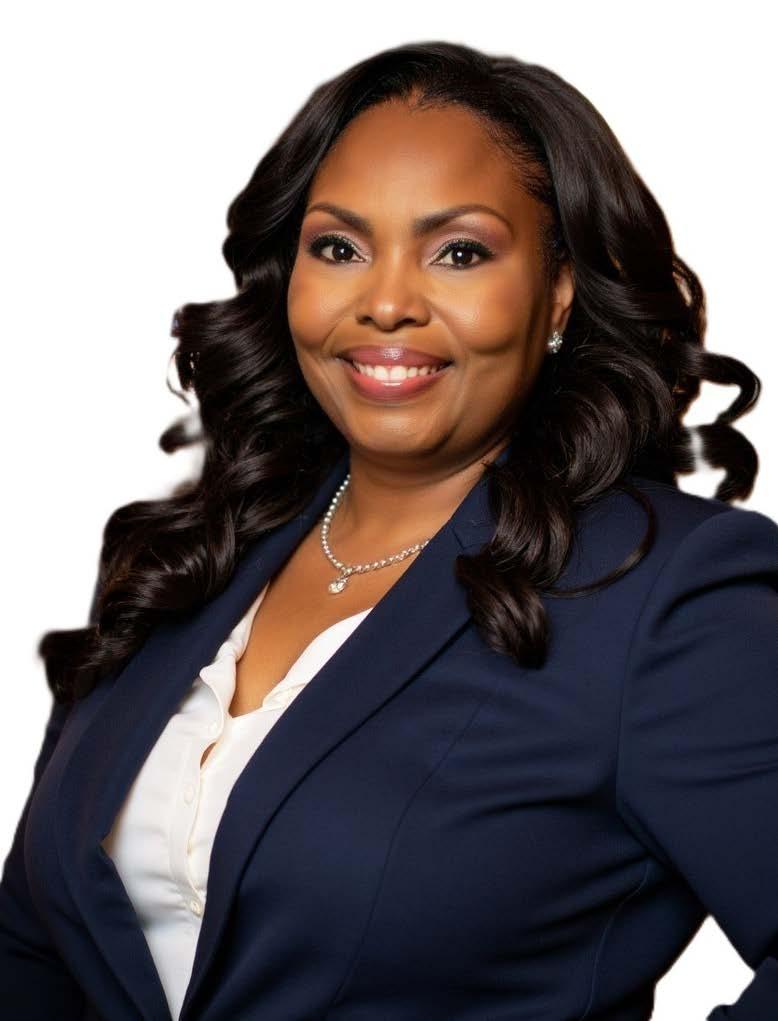
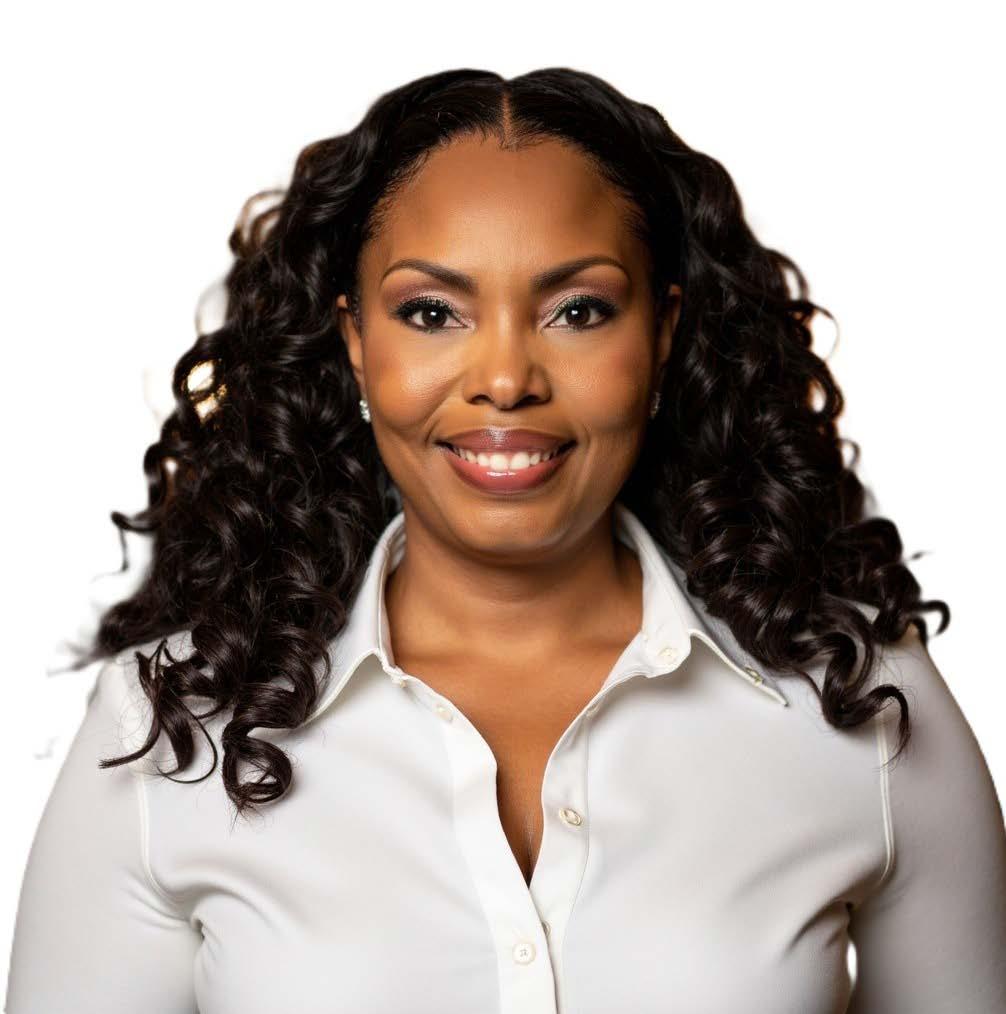
culture and travel play in uniting communities. The foundation I’m building at EPCVB is just the beginning.
Many young women look up to you as a trailblazer. What advice would you give to aspiring leaders who want to break into the tourism and hospitality industry?
My biggest advice is to own your uniqueness, don’t shrink yourself to fit into outdated moulds. This industry thrives on fresh ideas, so bring your whole self to the table. Build relationships, never stop learning, and know that resilience is as important as ambition. And always remember you’re not just representing yourself, you’re opening doors for the next generation of women who will follow in your footsteps.
Outside of your professional work, what are some personal passions or hobbies that bring you joy and help you stay grounded?
Gardening is another passion of mine; it connects me to nature, grounds me in the most relaxing manner, and rejuvenates me with energy when I need it most. Travelling, of course, is still something I enjoy personally, but I also find joy in simple things: time with family, or long, quiet walks that let me reflect. Those moments keep me balanced and remind me of the “why” behind the work I do.
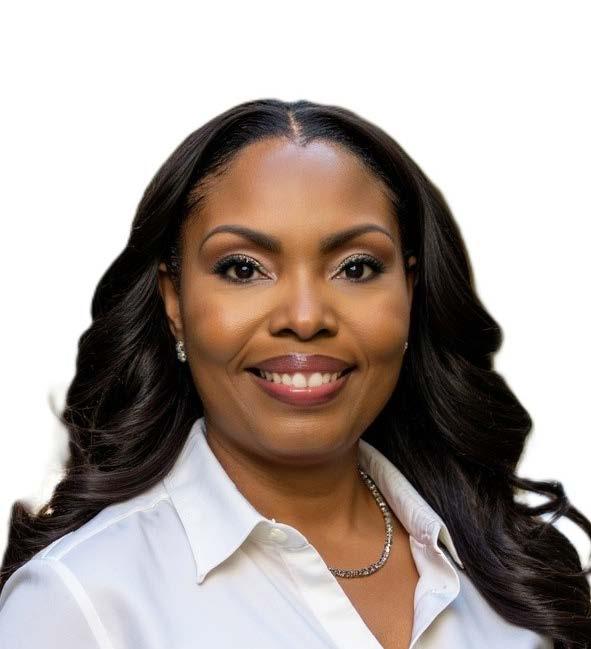

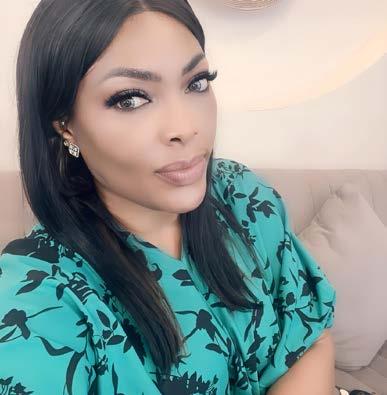
@aaddaahh
Iwent to the States recently, and it hit me: I actually love Lagos.
In America, journeys are uneventful. You enter your car, you drive, you arrive. Smooth roads, no drama. Safe, efficient — yes. But boring? Oh, painfully boring. Not even one gist on the way.
Lagos, on the other hand? Lagos is a theatre. At 6 a.m., when most cities are still yawning, Lagos has already started Act One, Scene 15. You can be crawling on Third Mainland Bridge, barely awake, and still catch a banker in full suit exchanging blows with a conductor. One man clutching his tie, the other dangling from a danfo door — both fully invested in a fight that will be forgotten the minute it ends.
And I always wonder — what happens after? Does the banker just straighten his tie, walk into the office, and close a million-naira deal like nothing happened? Does the conductor fight three more people before noon? That’s Lagos for you. The scene ends, another begins.
As a younger adult, I hated it. That first wave of hot air at Murtala Mohammed Airport — when the AC is rationed or simply nonexistent — felt like Lagos itself was slapping me. Thick. Impatient. Unapologetic. By the time I cleared immigration and grabbed my box, I was already ten kilos lighter from stress.

where there seems to be no way,” annexing pedestrian walkways with no shame. And if a pedestrian dares to complain? A danfo driver will curse him for “blocking traffic” — on his own walkway. Only in Lagos.
The soundtrack is its own madness: conductors chanting destinations that sound like riddles. Hawkers belting “Gala! Pure water!” like praise worship. Generators humming counterpoint. Lagos is never silent. Sometimes it’s a neighbour’s midnight party, other times a church vigil that insists on sharing its speakers with the entire street. Lagos doesn’t do quiet.
And the drama? Endless. One Lagos rain, and the city turns to Venice. Even a Tesla could double as Noah’s ark here. But akara is still frying by the roadside, because Lagos doesn’t stop for weather. In traffic, hawkers will not abandon you either — those fresh Gala and Capri-Sonne combos have saved more lives than we admit. Eko o ni baje.
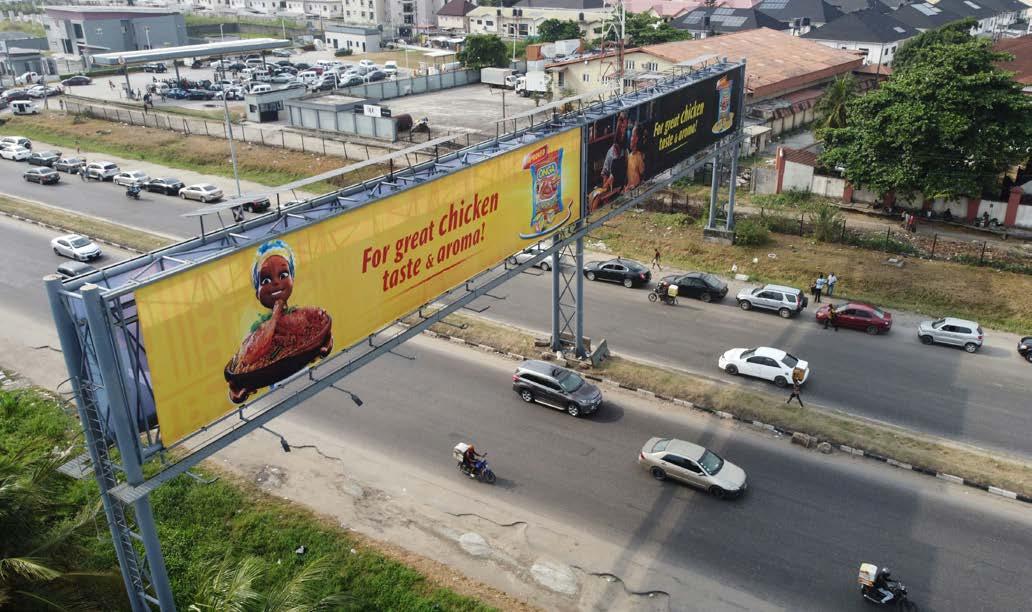
But now? I inhale it like perfume. That smell — heat, impatience, humanity — is home. I think I’ll even miss it now that the airport has been renovated. That hot slap was my Lagos signal: Welcome back.
And Lagos never forgets to remind you who’s boss. A three-lane road becomes six, effortlessly. Lagos drivers are urban planners of vibes. They “make a way
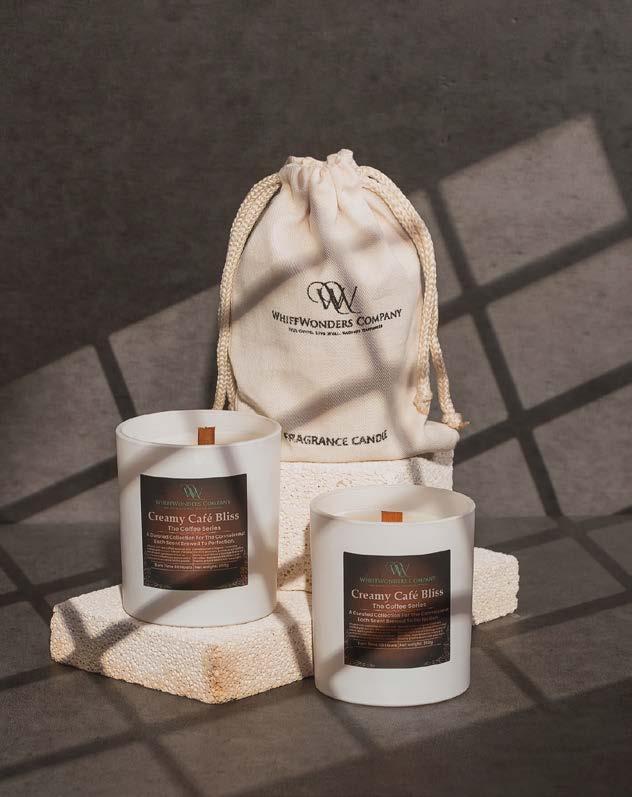

The other day, a group of youngsters ran into my car. They were pleading, negotiating, trying to keep things calm — until a random passerby inserted himself. He called me a wicked woman and spoiled their case completely. We soon discovered he wasn’t even with them. Just a Lagosian who wandered into drama that wasn’t his own. When the culprits told him to stop, he quickly blamed “the devil” and went back to pleading on their behalf. Only in Lagos.
It used to exhaust me. Now it delights me.
Because Lagos is more than stressful. It’s soul. It forces you to be
My generation once dreamed of escape. Abroad was the prize. London, America — anywhere but here. Lagos was something to endure, not to love. I remember the days of molue, Lagos City Transport, immortalised in Majek Fashek’s songs.
But Gen Z? They’ve flipped the script. They see Lagos as vibes. Street food is content. Market noise is background music for TikTok. Dusty sneakers? Fashion. They’ve reclaimed Lagos as a playground — art, music, street style, and storytelling on every corner. And honestly? They might be right.
Because Lagos has always been both: the chaos and the charm, the madness and the magic. But here’s my secret: as much as I love Lagos, I can’t wait to get home. To shut the door on the noise, walk into the bathroom, and reach for my GlowSoak Body Wash from WhiffWonders. Goat Milk on the tough days. Coconut Paradise when I need escape. Sunset Bliss when I just want comfort. Each one has its own mood, its own softness, its own reminder that joy is still possible. Then I light my Creamy Café Candle and suddenly, Lagos has melted into Paris. That’s my quiet rebellion. Lagos may roar, but my soft life? She whispers louder.
And maybe that’s the real Lagos lesson: life isn’t smooth or predictable. It’s messy, noisy, demanding. But inside the fumes and traffic, there’s joy waiting — if you slow down enough to notice.
That’s why, after all my travels, Lagos is becoming my favourite city in the world. Not because it’s easy. But because, like life itself, it’s beautifully complicated.
The beauty of Lagos is its diversity — tribes, religions, and the anyhowness. The anyhowness is Lagos. Disorder with rhythm. Learn that rhythm, and you’ll survive. Love it, and you’ll thrive.
BY DORCAS AKINTOYE
When it comes to makeup, less is often more. You don’t need to carry your entire vanity everywhere you go; just a few key items can help you look put together in minutes. Whether you’re heading to work, a casual outing, or even a last-minute event, certain makeup products should never be missing from your bag. Think of them as your “emergency kit” for quick touch-ups and confidence boosts throughout the day. Here are five makeup essentials that belong in every makeup bag.
A good foundation (or BB cream if you prefer something lighter) is the base of any makeup look. It helps even out your skin tone, cover blemishes, and give your face a smooth, fresh appearance. Carrying one in your bag allows you to quickly fix areas where your makeup may have faded or where you need a little extra coverage. BB creams are especially great for everyday use because they combine moisturiser, sunscreen, and light coverage in one product.
Even with the best foundation, there are times when you need a little extra help, such as concealing dark circles or pimples. That’s where concealer comes in. It’s a small but mighty product that instantly brightens your face, making you look more awake and refreshed. A quick dab under your eyes or on a stubborn spot can completely change your look. Because concealers usually come in small tubes or sticks, they’re easy to carry around and apply on the go.
Never underestimate the impact that mascara can have on your face. A few swipes can instantly open up your eyes, make your lashes look longer, and give you a more polished appearance. Even on days when you’re not wearing a full face of makeup, mascara alone can make you look put together. It’s perfect for quick touch-ups before a meeting, date, or outing. Choose a waterproof formula if you want it to last all day without smudging.

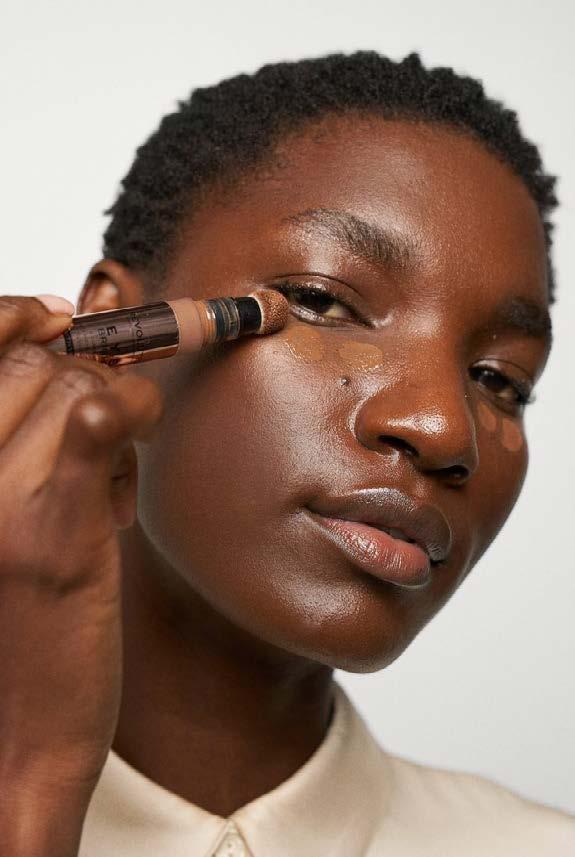
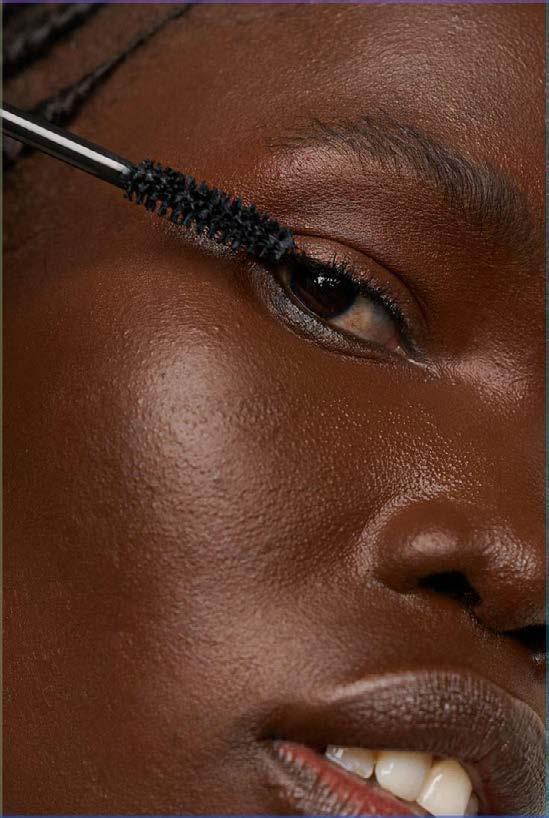


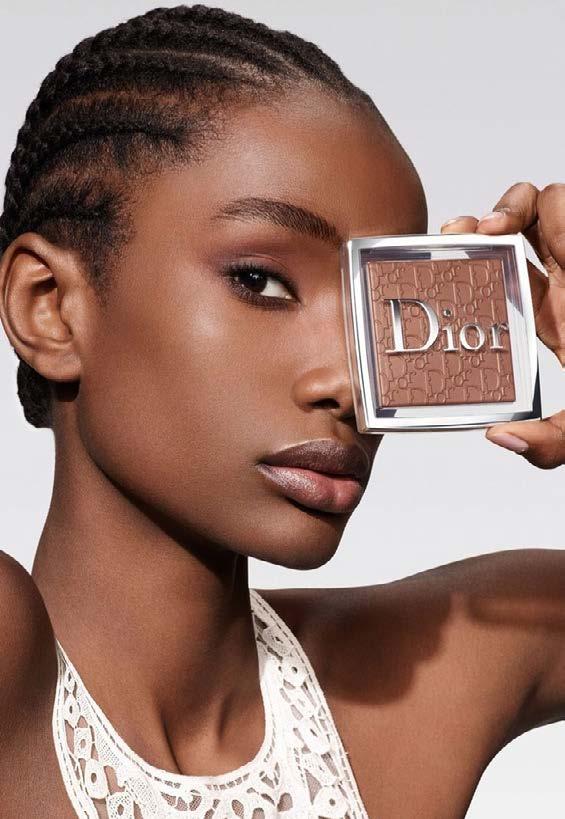
Your lips can completely transform your look. A bold lipstick adds glamour, while a nude shade keeps it simple and natural. Lip gloss, on the other hand, is perfect for adding shine and keeping your lips hydrated. Having at least one lip product in your bag ensures you never look dull or washed out. It’s also the easiest way to transition from a daytime look to an evening vibe. Simply swap a soft shade for a bold red or deep plum, and you’re ready to go.
No one likes walking around with an oily or shiny face, especially in hot weather. A compact powder is a lifesaver for quick touch-ups. It helps reduce shine, set your foundation, and give your skin a smooth, matte finish. Most compacts also come with a mirror, making it easy to reapply on the move. It’s one of those products you’ll find yourself reaching for more than once in a day.
Makeup doesn’t have to be complicated. With just these five essentials, you’ll always be prepared to refresh your look, wherever you are. These basics are the backbone of any makeup bag, ensuring you look confident and put together without carrying your entire collection around.
BY JOHNSON CHUKWUEKE
As Nigeria celebrates 65 years of independence, the green and white flag doesn’t just symbolise freedom; it represents a nation whose cultural influence now spans the globe. Beyond politics and economics, Nigerians have become global tastemakers, dominating sports, film, and music in ways that continue to shape the world’s perception of Africa. In sports, Nigerian athletes have
carried the country’s pride onto international arenas, from Olympic tracks to football stadiums, breaking records and setting new standards. Nollywood, once viewed as a regional industry, has evolved into one of the world’s most prolific film hubs, with Nigerian stories now streaming on global platforms and captivating audiences worldwide.
Music, meanwhile, has perhaps become Nigeria’s loudest voice;
In the world of sports, Nigeria has carved a reputation as a powerhouse on the continent and beyond, producing legends who continue to inspire generations. On the football front, Nigeria has consistently shown its strength. The men’s team, the Super Eagles, not only reached the finals of the Africa Cup of Nations (AFCON), reaffirming their dominance in African football, but also lifted the prestigious 2025 Unity Cup, a tournament that brought together nations in a celebration of unity and competition. Individual brilliance has also shone through, with Nigerian male players securing the coveted CAF Player of the Year award multiple times, cementing their place among the world’s elite.
Yet, it is perhaps the women who have carried the torch the brightest in recent years. The Super Falcons, Nigeria’s women’s national football team, remain untouchable in Africa, clinching their 10th AFCON title, an achievement unmatched across the continent. At the individual stage, Nigerian female players have also dominated the CAF Women’s Player of the Year awards, proving their talent is as formidable as that of their male counterparts.
Afrobeats and Afropop now headline concerts in the U.K., U.S.A., France, and even India, redefining global soundscapes. At 65, Nigeria is not just looking back at its journey to freedom; it’s looking forward as a cultural force.
Our athletes, actors, and musicians are ambassadors of resilience, talent, and creativity, proving that Nigeria’s heartbeat is not confined within its borders; it echoes across the world stage.

Basketball tells a similar story of Nigerian resilience and brilliance. The D’Tigress, Nigeria’s women’s basketball team, has made history by winning the FIBA Women’s AfroBasket Championship for the fifth consecutive time, a continental record. This streak not only highlights their athletic supremacy but also underscores Nigeria’s growing influence in the global basketball scene.
Their achievements symbolise determination, teamwork, and the unyielding spirit of the Nigerian teams, who continue to break barriers in sports traditionally dominated by others.

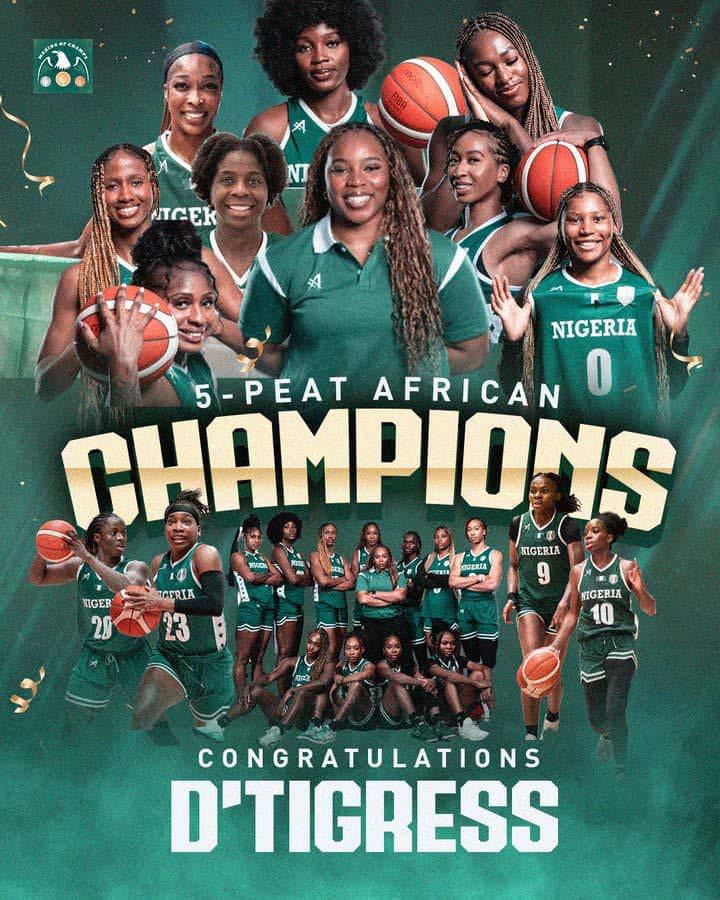
If sports is Nigeria’s heartbeat, Nollywood is its voice, a booming, unapologetic, and ever-expanding voice that has captivated audiences both at home and abroad. Over the last 65 years, the Nigerian film industry has evolved from grassroots productions into a global cinematic powerhouse, establishing its presence across streaming platforms, cinemas, and cultural spaces worldwide.
One of the brightest recent moments came with Funke Akindele’s blockbuster, Everybody Loves Jenifa. The film not only dazzled audiences with its storytelling and star power but also smashed records, becoming the highest-grossing Nigerian film of all time. It was more than a commercial success; it was a cultural milestone that showed just how far Nollywood had come and how much potential it still holds.
Meanwhile, Ruth Kadiri has carved out her own lane as a digital powerhouse. Her consistent production of engaging, relatable films for YouTube has attracted massive audiences, proving that Nollywood’s reach isn’t limited to cinemas or streaming giants. In recognition of her efforts, YouTube named her one of Nigeria’s leading female creators, celebrating her ability to harness the platform and connect with millions of people. Kadiri’s success underscores Nollywood’s versatility; it’s not just about big screens; it’s also about accessibility and innovation.
Beyond individual triumphs, Nollywood’s marriage with Netflix has opened a new chapter in the global storytelling playbook. From Kunle Afolayan’s visually stunning dramas to young filmmakers bringing fresh perspectives, Nigerian films on Netflix have become
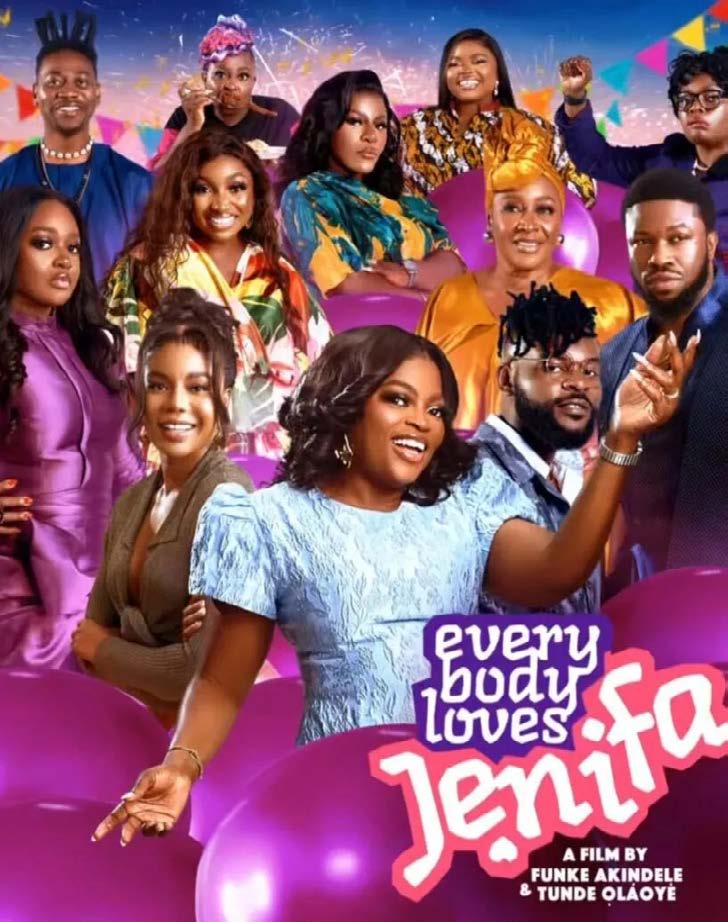


international hits, consistently topping viewership charts and sparking conversations. Titles like Far From Home and The Black Book have proven that Nigerian stories, rich with local flavour yet universal in theme, can resonate with global audiences.
These achievements signal more than success; they represent validation of one’s abilities. Nollywood isn’t just producing films; it is exporting culture.
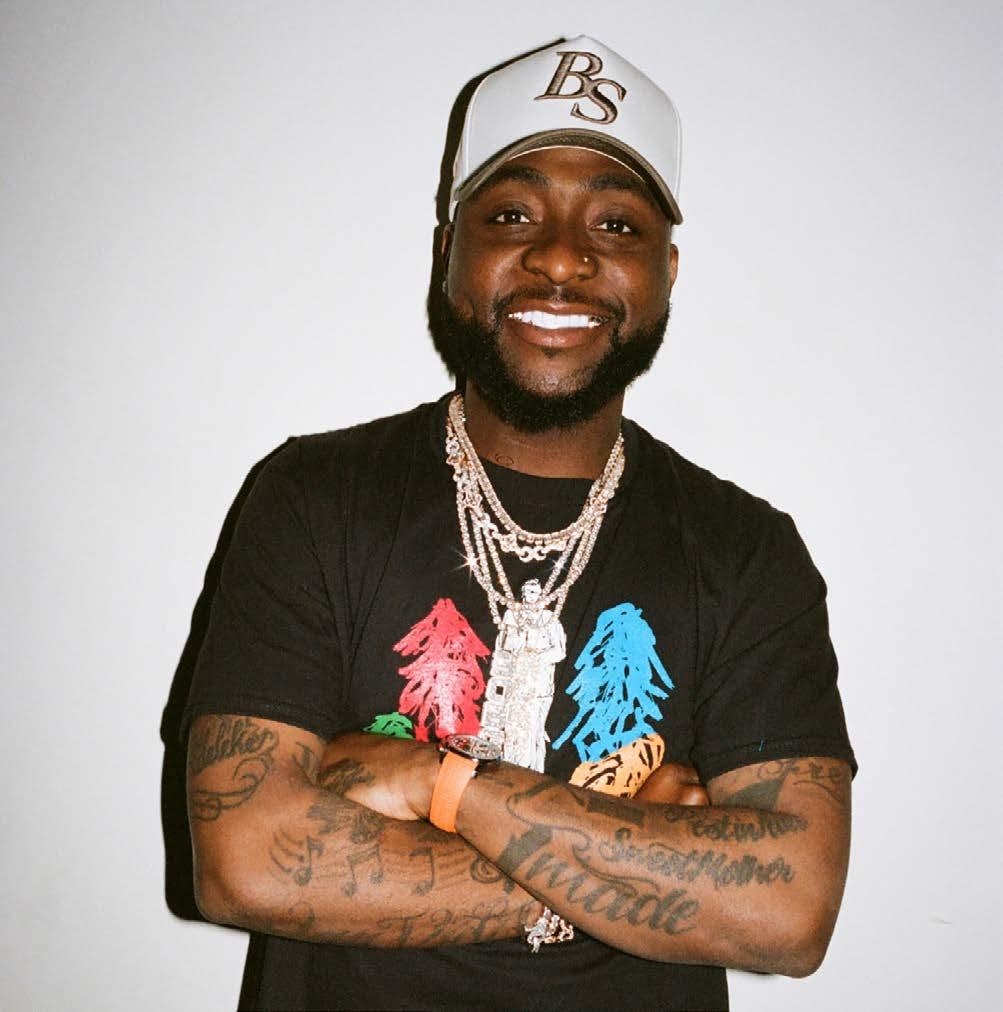
If Nollywood tells Nigeria’s stories, music sets them to rhythm—and in recent years, that rhythm has become global. From sold-out arenas to Grammy wins, Nigerian artists have not only dominated charts but also shaped the soundtracks of this generation, proving that Afrobeats is not a genre to overlook; it is a cultural movement. The global takeover has been spearheaded by the famous Big 3: Davido, Wizkid, and Burna Boy, whose artistry opened doors for an entire wave of Nigerian talent. Burna Boy’s Grammy win and multiple sold-out stadiums, Wizkid’s iconic Made in Lagos project that charted worldwide, and Davido’s hit anthems like Unavailable have placed Nigerian music in conversations alongside the world’s biggest stars. However, the new wave has shown that the story is still being written. Rema’s Calm Down remix with Selena Gomez became a cultural phenomenon, topping global charts and breaking records on platforms like Spotify and YouTube. His success has established him as one of Afrobeats’ fiercest global ambassadors, bringing Nigerian youth culture to the world stage.
Then there’s Asake, the genre-bending artist redefining what modern Afrobeats can sound like. Blending Fuji influences, amapiano beats, and street anthems, Asake has headlined sold-out international shows and pushed the boundaries of Nigeria’s sonic identity. Women, too, are carving space at the very top. Tems has become a global icon, collaborating with artists such as Beyoncé, Drake, and Rihanna, while earning a Grammy. Her distinct voice and artistry represent not just a personal victory but the expanding diversity of Nigerian music on the global stage.




Ihave always believed love should be enough. That the warmth of someone who truly cares for you can calm even the loudest longings in your body. But tonight, as I sit on the edge of his bed, I know I have lied to myself.
Fiyin was safe. He was the man who called me every morning, prayed with me over the phone, and reminded me to eat. Love with him was steady, like the quiet rhythm of rain falling on the roof. I should have been satisfied. I should have stayed content. But then there was Dotun.
I met him through a mutual friend at a birthday party in Lekki. From the moment his eyes caught mine, I felt something shift inside me. He didn’t even have to touch me; the way he spoke, the confidence in his laughter, the softness in his gaze, it all unsettled me. Every time we met, my heart would betray me, beating like it belonged to him.
At first, I tried to resist. I told myself I was in love with Fiyin, that I could not let a man like Dotun ruin what I had built. But desire is a stubborn visitor; it does not knock politely, it barges in, demanding attention. And I found myself giving in little by little; lingering conversations, stolen glances, a brush of his hand against mine that left me awake at night, restless.
The night everything changed. We were supposed to go over a project I was working on; he had promised to help me fine-tune some ideas. But when I walked into his apartment, and he closed the door behind us, I knew the project was just an excuse. He offered me a drink, and I refused, but he smiled like he already knew my answer. We sat on the couch, pretending to talk about work, but the silence between our words was louder than any sentence. My body leaned towards him before my mind could stop it.

I wanted to lie. I wanted to say I didn’t know what he was talking about. But my lips parted, and the truth slipped out.
“Because I love someone else.”
He moved closer, his voice dropping lower. “But you want me.”
I should have stood up. I should have walked away. Instead, I stayed still, trembling. My body screamed yes, even as my heart whispered no.
When his fingers touched my face, all my resistance crumbled. It wasn’t just a kiss; it was a storm. One moment, I was drowning in guilt; the next, I was floating in a sea of fire. Desire carried me, rough and unrelenting, until I stopped thinking altogether.
“Why do you keep fighting this?” he asked quietly, his eyes holding mine.
One thing led to another, and soon we were lost in each other, giving in to what we had both tried to deny. It was breathtaking, wild, and terrifying at the same time. I felt alive in a way love had never made me feel before.
When it was over, I lay beside him, staring at the ceiling. My chest was heavy, not with regret, but with the weight of a choice I knew I had already made. I had picked desire over love.
I don’t know what tomorrow will bring, if guilt will eat me alive, or if Fiyin will sense the change in me. But as Dotun’s hand traced lazy circles on my skin, I knew one thing for sure: sometimes, love is not enough. Sometimes, desire wins.
BY BOLUWATIFE ADESINA

PaulThomas Anderson’s One Battle After Another, the most entertaining, exhilarating movie you’ll see all year, is an incision into a raw nerve. A thrilling, tense portrait of modern life, it’s Anderson’s most urgently relevant work yet. It’s a layered, audacious barnburner of a parable about parents and children, fascism and resistance, hate and love, isolation and community — and it already feels like his radical magnum opus.
Running nearly three hours yet never dragging for a moment, it’s darkly comedic, quietly mournful and, most critically, earnestly hopeful for our future. At the same time, it’s clear-eyed about the perils being left to the next generation and the way, as is said aloud at one point, “the world has changed very little” despite efforts to move the needle in a better direction. At every chaotic turn, it sets its sights on the horrors of America in 2025 and beyond, confronting the cruelties playing out every day just as it finds glimpses of communal resistance. While movies, or art more broadly, won’t alone change the world, one wishes more grappled with it like this. Silly, sincere and sharp, it represents a high point in Anderson’s already essential body of work.
Loosely inspired by the Thomas Pynchon novel Vineland, the film centres on the revolutionaryturned-pot-smoking loner Bob Ferguson (a madcap Leonardo DiCaprio), who is now living in hiding and trying to protect his daughter, Willa. Played by the
outstanding Chase Infiniti in her feature debut, Willa is sceptical of her father and just wants to be free to live her own life. However, when an enemy from their past (a sinister Sean Penn) comes knocking, she’ll become caught up in a struggle both personal and political that involves the mother (a terrific Teyana Taylor) she never knew and a revolutionary (the always excellent Regina Hall) who may save her. There’s also a scene-stealing Benicio Del Toro as “Sensei” Sergio St. Carlos, who continually saves Bob’s skin. While this sounds simple, Anderson uses this as a launching point to make one of his most kinetic and profound films yet, one that cuts right to the very heart of the existential battle for America’s soul.
The narrative itself is intentionally messy in how this unravels, but on a pure technical level, it’s as masterfully constructed and captivating as anything Anderson has ever done. With electrifying cinematography by Michael Bauman, whose camera darts through frenzied action scenes before coming in for a perfectly timed close-up when it quiets down, plus a stellar score by Jonny Greenwood (and Radiohead!), it’s cinema that grabs you by the throat and doesn’t let go. When it builds to a showstopping extended finale, where every precise cut and sweeping camera move brings the same gripping feeling as a classic like Fury Road, you realise you’ve seen a major work. That it offers a gentle coda after the dust has settled makes it a near-masterpiece.
After already helming more monumental films than one could hope to make in many lifetimes, from There Will Be Blood to Boogie Nights, to The Master and Phantom Thread, it’s now One Battle After Another that proves to be Anderson’s most dynamic confrontation with the state of 2025 America. He’s captured the tumultuous feeling of living through history and facing down forces that seem perpetually out of our control. It’s moving filmmaking, even as the raw nerve it cuts open is one a film alone can never heal. Yet in each glimpse we get of shared community surviving despite all that’s crumbling, we see this falls to all of us. To Anderson, after laying bare the grim state of our present reality, it’s the community that ensures we can step back outside to fight again.
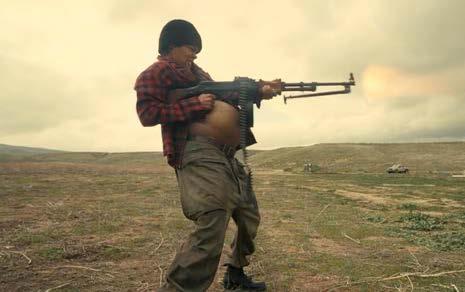
I really enjoyed this one.

Scan this with your camera or click to access the playlist (Youtube Music)
It is an iron rule of TV that for every Frasier after Cheers, spin-offs that became beloved in their own right, there will be any number of abortive attempts to stretch a premise beyond its breaking point. Joey trying to carry the light for Friends being a prime example. The list goes on, and proves inauspicious reading for Greg Daniels and Michael Koman, who, with this season, expand The Office (US) ’s universe beyond Dunder Mifflin in Pennsylvania, to Ohio and the newspaper business, with The Paper.

Scan this with your camera or click to access the playlist (Spotify)

When Ned Sampson (Domhnall Gleeson) arrives at the Toledo Truth Teller to become its new editor-in-chief, he is accompanied by a documentary crew. They will be capturing a snapshot of life at the headquarters of paper products company Enervate. “Office supplies, janitorial paper, toilet tissue, toilet seat protectors, and local newspapers,” the company’s head of strategy, Ken (Tim Key), tells viewers. “And that is in order of quality.” And so it seems, when Ned first encounters the Truth Teller’s eccentric staff. Sure, there’s level-headed Mare (Chelsea Frei), with whom he strikes up an instant rapport, but there’s also depressive circulation manager Nicole (Ramona Young), irrepressible ad-man Detrick (Melvin Gregg), and fiery Italian managing editor Esmeralda (The White Lotus’s Sabrina Impacciatore), who feels she has been usurped by Ned’s arrival. Oh, and then there’s a self-contained, sudoku-loving accountant called Oscar Martinez (Oscar Nunez, reprising his role from The Office).
The newspaper industry is in terminal decline. Yet battered on both sides by negative winds, the contraction of the advertising market after the dotcom boom, and dwindling audiences in the digital age, it retains a certain allure. And so, it proves a perfect setting for a sitcom about people feeling the pressure of disappointment. Should Mare give up on her journalistic ambitions and become a hotel concierge? Is Esmeralda too old to understand the digital innovation she’s leading? Has Ned arrived in his dream job just as the dream is ending? These are the mortal considerations of people who might be wasting their lives in a dying sector.
That’s a strength to the backdrop, but it’s also a weakness. The setup necessitates the gradual improvement of the Truth Teller’s dwindled standards. Ned corrals his team of unlikely yet intrepid reporters, and, slowly, the newspaper’s output improves. When Ricky Gervais and Stephen Merchant created Wernham Hogg (the Slough-based paper
company in the original Office), they created the ultimate corporate cipher. A company so boring that it could serve as a proxy for the mind-numbing work we’ve all experienced. The Paper is different. The nature of the work drives the plot, turning it into a media satire, where the setup is as important as the characters. “What is our Wordle?” Ken asks the team. “We need things that keep people’s minds off the news.”
Against this backdrop, any actor will struggle to cut a distinctive figure. Alex Edelman’s hapless Adam and Gbemisola Ikumelo’s salty Adelola fight to make an impression, while important B-plots, such as Nicole and Detrick’s fledgling attraction, feel distinctly undercooked. More successful is Tim Key going full David Brent, dialling the cringe factor up to suitably anxiety-inducing levels,

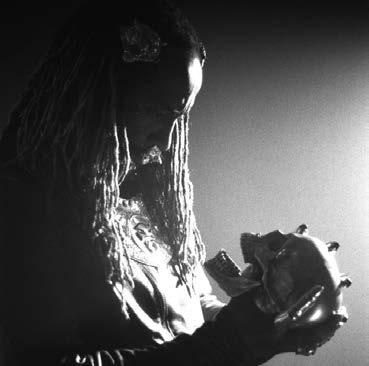
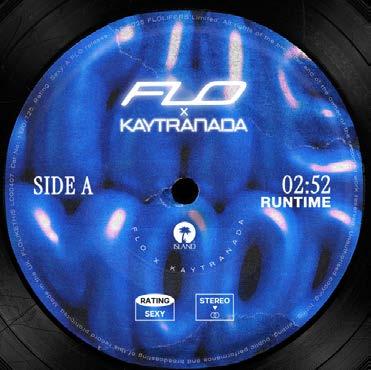



and Impacciatore’s inevitably Emmy-winning performance as the lightly deranged Esmeralda, who steals every scene she’s in (and knows she’s doing it). She proves an important foil to Gleeson and Frei’s central pairing, who need some of the manic energy to play off. “Such a perfect level of bland,” she sighs at her new boss. “How do you do that?”
The Paper will inevitably be compared to The Office, and in largely unfavourable terms. But the question of whether it is good enough to survive on its own is moot. It doesn’t have to. Fans of The Office will give it a go, and over the course of a slow-burn first season, come to feel some affection for the denizens of the Truth Teller Tower. After all, the first season of The Office, after its migration to the US, was an imperfect thing, struggling to find its identity. It was given time and became one of the most successful sitcoms of the 21st century. Whether The Paper will be afforded that same grace in the instant gratification media landscape it’s satirising remains to be seen.


